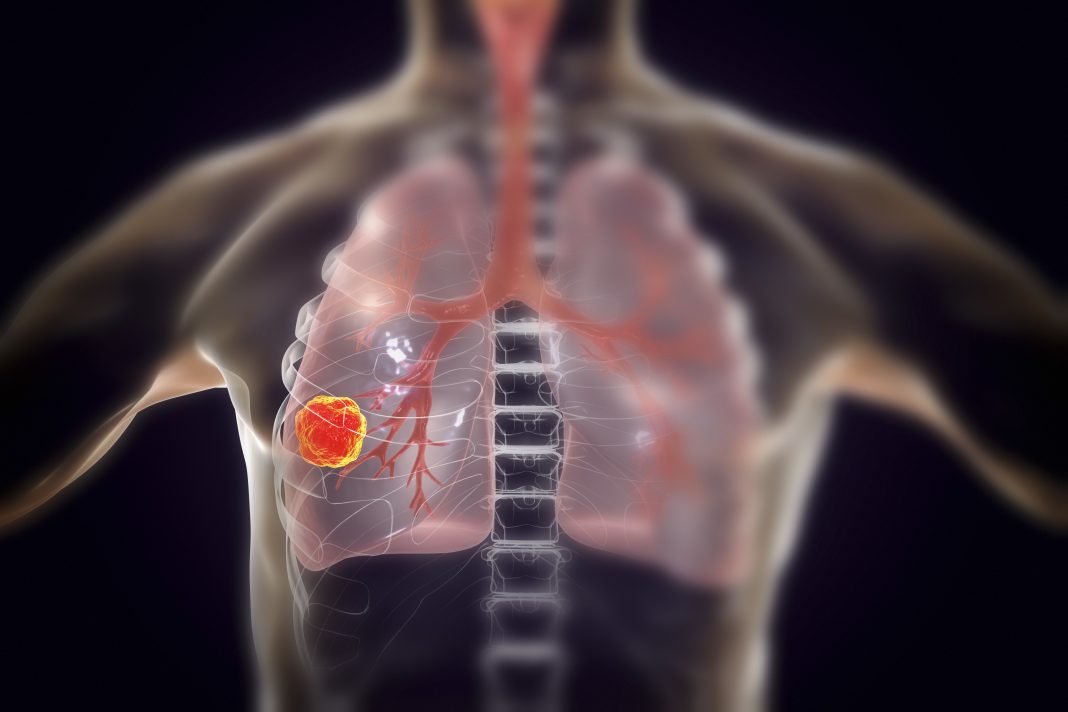Lung malignancies comprise lethal and aggressive tumors that remain the leading cancer-related death cause worldwide. Regarding histological classification, lung squamous cell carcinoma (LUSC) and adenocarcinoma (LUAD) account for the majority of cases. LUSC is a major subtype of lung cancer with limited treatment options. Now, a team led by researchers at NYU Langone Health’s Perlmutter Cancer Center has identified a gene that drives development.
The study, “KMT2D deficiency drives lung squamous cell carcinoma and hypersensitivity to RTK-RAS inhibition,” is published in Cancer Cell.
Researchers found that deleting a gene called KMT2D caused normal (basal) lung cells grown in complex cultures called organoids to transform into LUSC cells.
“LUSC represents a major subtype of lung cancer with limited treatment options,” wrote the researchers. “KMT2D is one of the most frequently mutated genes in LUSC (>20%), and yet its role in LUSC oncogenesis remains unknown. Here, we identify KMT2D as a key regulator of LUSC tumorigenesis wherein Kmt2d deletion transforms lung basal cell organoids to LUSC.”
“Our study identifies KMT2D as a pivotal contributor to the development of lung squamous cancers, and offers vital clues about how to target KMT2D-deficient LUSC,” explained co-corresponding author Kwok Kin-Wong, MD, PhD, director of the division of hematology and medical oncology at NYU Langone Health. “The same genetic changes that cause the gene to contribute to cancer also create tumors that are very sensitive to existing drugs that target a related pathway.”
The new study confirms prior evidence that the KMT2D gene encodes a protein (a histone methyltransferase) that determines the degree to which the tyrosine phosphatase genes can be accessed by the cellular machinery trying to read them.
The research team chose to test in study mice a combination of two drugs, SHP2 inhibitor SHP099, and pan-ERBB inhibitor afatinib. The team reasoned that experimental drugs designed to inhibit SHP might also counter the effect of KMT2D deficiency when used alongside the ERBB inhibitor.
The researchers observed the combination slowed lung tumor growth in mice with LUSC that had been engineered to lack KMT2D, as well as in tumors in mice derived from the human LUSC tumors with KMT2D mutations.
“Multiple SHP2 inhibitors are currently testing in clinical trials, and afatinib is already available,” said co-corresponding author Hua Zhang, MD, PhD, formerly an instructor in the department of medicine at NYU Langone Health, and now an assistant professor in the department of medicine, division of hematology and oncology, at University of Pittsburgh School of Medicine and UPMC Hillman Cancer Center. “Our findings warrant the design of clinical trials that test these therapies in KMT2D-deficient patients with LUSC.”






